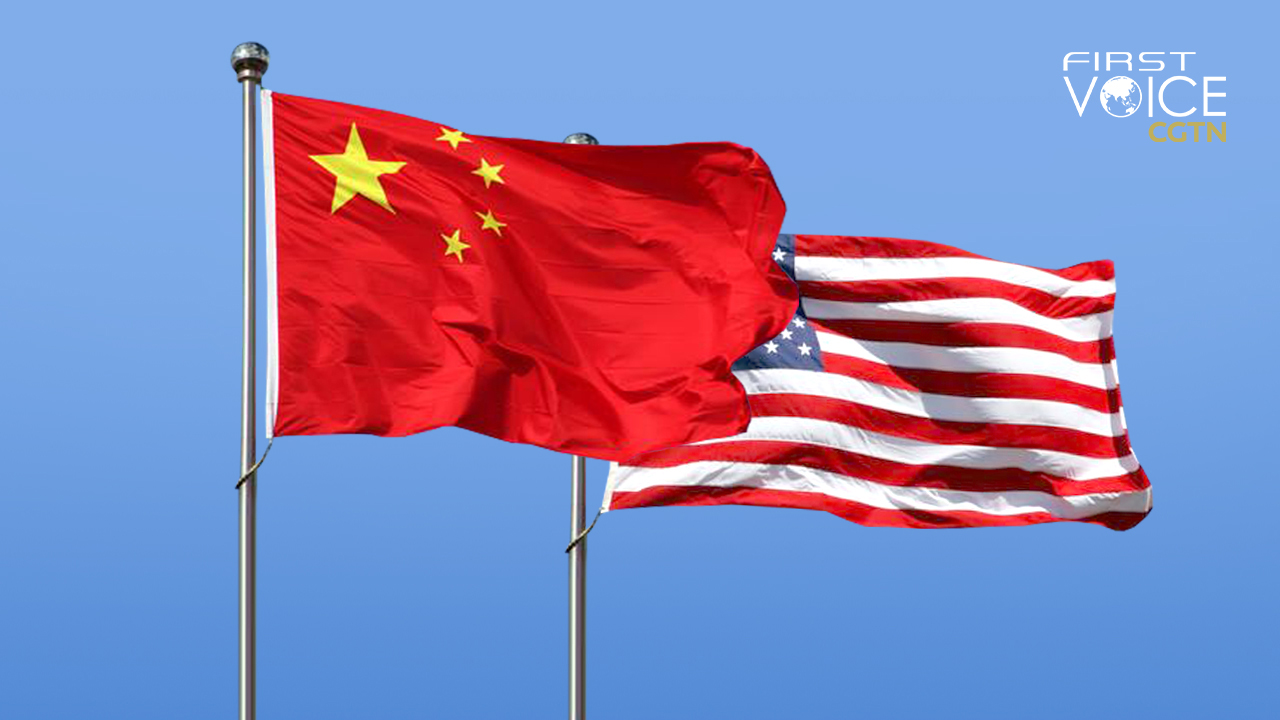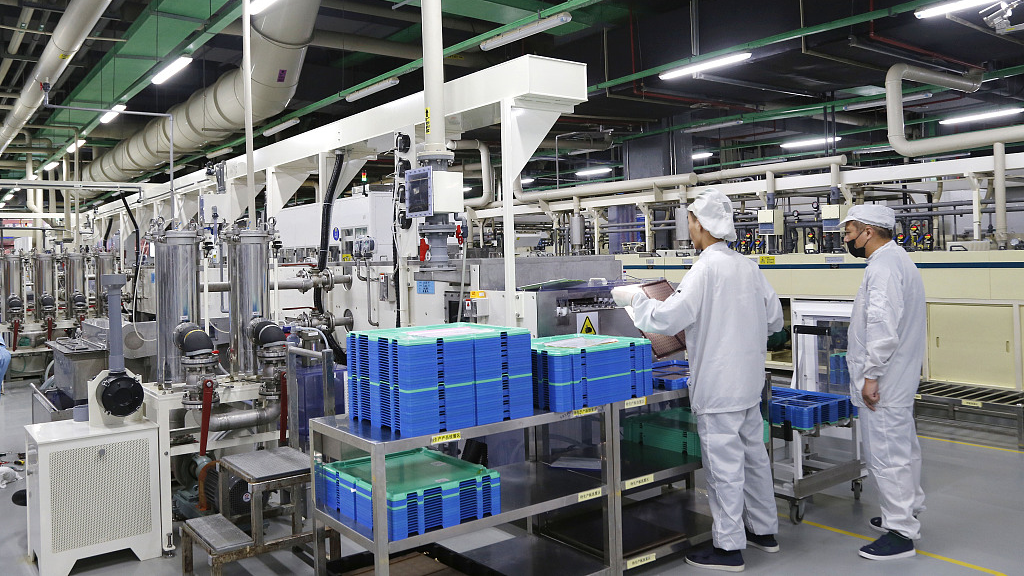
Editor's note: CGTN's First Voice provides instant commentary on breaking stories. The column clarifies emerging issues and better defines the news agenda, offering a Chinese perspective on the latest global events.
A U.S. Air Force general warned Washington would fight Beijing in the next two years. "My gut tells me will fight in 2025," General Mike Minihan, head of the U.S. Air Force's Air Mobility Command, said in an internal memo, warning that the presidential elections in the U.S. and the Taiwan region in 2024 would create an opportunity for the Chinese mainland to take military actions.
Although Minihan's remarks don't represent the Pentagon's view on China as a U.S. defense official clarified to the media, the memo shows growing concerns among high-level American officials over a possible war between the world's two largest economies. Despite claims that it doesn't intend to block China, the U.S. has ramped up its confrontation by taking a more belligerent tone on this perceived enemy. It’s anti-China hawkish remarks and acts from the U.S. side that place Beijing-Washington ties at risk.
In November last year, Navy Admiral Charles Richard, commander of U.S. Strategic Command, said that the Ukraine crisis is "just the warmup" and "the big one is coming," referring to a U.S.-China war. In 2021, then head of the U.S. Indo-Pacific Command Adm. Philip Davidson said "the threat (in the Taiwan Straits) is manifest during this decade, in fact, in the next six years."
Apart from hawkish remarks, the U.S. government has manipulated every possible means to check China's development. Staying on high alert of China's technological strides, the U.S. has released a slew of regulations restricting China's access to advanced technologies. Earlier, Washington imposed unilateral export controls barring American firms from selling chipmaking equipment to the Chinese side.

Workers at a chip packaging production line in Nantong City of east China's Jiangsu Province, August 10, 2022. /CFP
Workers at a chip packaging production line in Nantong City of east China's Jiangsu Province, August 10, 2022. /CFP
Despite calls for a stable U.S.-China relationship, U.S. economic conditions and political divides determine American politicians' fever on anti-China confrontational remarks and acts. Economically, the U.S., despite its status as a technological superpower, has seen its innovation sputtering. Research from the Harvard Business Review found the U.S. innovation ecosystem has "splintered" since the 1970s. While the U.S. has increased its expenditures in science, the country's growth in productivity has slowed, according to the research.
With its slowing innovation engine, the U.S. has to compete with other world players for profits. This is why the country has launched trade fights with not just China, but also other states including its allies. For instance, the brewing trade spat over the U.S. Inflation Reduction Act – a significant investment in clean energy and transportation technologies – has put the Washington-Brussels relationship into the shadow. China's technological growth as a developing country in recent years has deepened the U.S.'s anxiety level and thereafter hostility against Beijing.
Politically, a divided Washington needs a common enemy to unite. American politicians, with different interest groups behind, are divided on an array of issues, but ironically can reach consensus on the "China threat" theory. The more hawkish American officials are against China, the more votes they can secure. "Weak on China" had been a criticism made against Biden. With 2024 presidential elections approaching, American politicians, be it Democrat or Republican, race to act tough on Beijing. Additionally, blaming China has become an easy and effective method to shift domestic discontent over American political, economic, and social challenges.
These confrontational attempts from the U.S. side have put the Beijing-Washington relationship at risk. In the post-COVID era that calls for peace and development, stabilizing the China-U.S. relationship, one of the most important pair of bilateral relations, remains of vital importance. Nonetheless, Washington's anti-China endeavors have become a source of chaos for the world.
China welcomes cooperation with the U.S., but stands determined to defend its national interests when confronting provocations. For Washington, it will pay more for containing China than overcoming the current difficulties to peacefully co-exist with the country.
(If you want to contribute and have specific expertise, please contact us at opinions@cgtn.com. Follow @thouse_opinions on Twitter to discover the latest commentaries in the CGTN Opinion Section.)